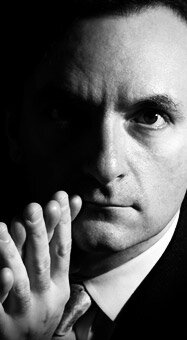As the weather gets warmer, things are starting to heat up in the local classical music scene. Catch world premiere performances from today’s hottest composers and choreographers. Explore great works of the 20th century with Shostakovich at Benaroya Hall and a Charles Ives festival at the University of Washington. Or travel further back in time with the Medieval Women’s Choir as they transport audiences to 12th century Germany.
May 3 — The Oregon Symphony rolls into town for a performance at Benaroya Hall. Our orchestral neighbors from the south bring along a diversity of musical treats. Hear Schubert’s “Unfinished” Symphony alongside music by Ravel and Kurt Weill (of “Mack the Knife” fame). A special performance of a work by Thai composer Narong Prangcharoen rounds off the evening.
May 4 – 18 — Seattle Opera brings two unusual tales of damsels in distress to the McCaw Hall stage. The operatic double bill begins with Francis Poulenc’s The Human Voice. Based on a 1930 play by Jean Cocteau, the one-woman opera captures one side of the conversation as a despairing Parisian woman is dumped via telephone. After intermission, Puccini’s Sister Angelica transports the audience to 17th century Italian convent, where a young nun struggles with hidden secrets from her past.
May 6 – 8 — The University of Washington School of Music explores the strange world of American composer Charles Ives with three days of lectures and performances. An insurance agent by day and composer by night, Ives was fond of quoting American patriotic songs and familiar classical works in his compositions. Hear Ives’ orchestral works on May 6, his devilishly difficult “Concord” Piano Sonata on May 7, and a collection of songs and chamber music on May 8.
May 8 — Pianist Jon Kimura Parker shows off his chops at the UW’s Meany Hall with his own solo piano arrangement of Stravinsky’s infamous ballet Rite of Spring. As if a full-length performance of Rite isn’t enough, Parker also throws in Mussorgsky’s Pictures at an Exhibition and works by Prokofiev and Rachmaninoff.
May 11 — Soprano Marian Seibert joins the Medieval Women’s Choir for “Music of the Spheres,” a tribute to 12th-century abbess and religious mystic Hildegard of Bingen. A renowned healer, poet, and composer, Hildegard is most famous for her multi-sensory “visions” that affected her throughout her lifetime. Travel back in time to Hildegard’s Middle Ages with this choral performance, accompanied by period instruments.
May 14 — Learn about the astounding life of poet Krystyna Zywulska, member of the Polish Resistance and survivor of the Auschwitz concentration camp. Music of Remembrance presents the world premiere performance of Jake Heggie’s Farewell, Auschwitz!, which brings Zywulska’s poetry to life through music and song.
May 16 – 17 — The Seattle Symphony celebrates Shostakovich with two concerts of the composer’s most beloved works. On May 16, the orchestra performs the dramatic Symphony No. 5 along with Piano Concerto No. 1, featuring guest soloist Ignat Solzhenitsyn. The next evening, May 17, hear Shostakovich’s Cello Concerto No. 1 performed by 21-year-old Julian Schwarz, son of SSO Conductor Laureate Gerard Schwarz.
May 18 – 19 — With the long, sunny days of summer quickly approaching, it’s the perfect time to pay tribute to sunshine and light. Seattle Pro Musica‘s “Lucis” celebrates the season with a program of contemporary choral works devoted to the theme of light. The concert features several composers who herald from Scandinavia and the Baltics, including Finnish composer Jaakko Mantyjarvi, whose Canticum calamitatis maritimae honors those who perished in the tragic MS Estonia shipwreck of 1994.
May 31 – Jun. 9 — Who says Pacific Northwest Ballet doesn’t do modern? The company’s annual “Director’s Choice” production brings together short masterpieces by the great choreographers of the 20th century and today. This year’s show pairs Balanchine favorites with a world premiere by Christopher Wheeldon, one of contemporary ballet’s shining stars.
